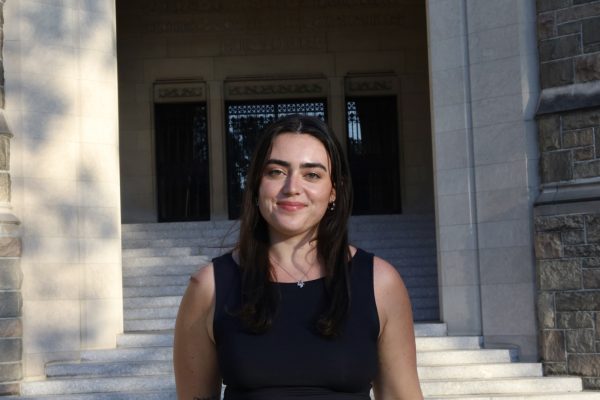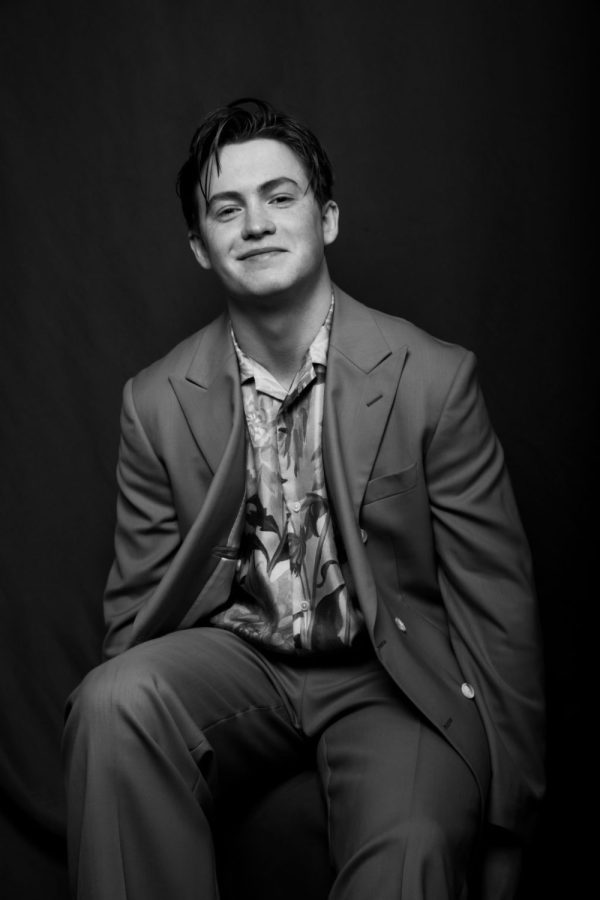No One Owes You Their Sexuality
On Halloween, I received a text from my friend with a screenshot of a tweet by “Heartstopper” star Kit Connor. The tweet stated: “back for a minute. i’m bi. congrats for forcing an 18 year old to out himself. i think some of you missed the point of the show. bye”
Since the release of “Heartstopper” and production began for Connor’s new movie with Maia Reficco, “A Cuban Girl’s Guide to Tea and Tomorrow,” Connor has been subjected to harassment over his personal life, from being accused of “queerbaiting” for playing a bisexual character while not being out, to speculation around a rumored relationship with his new co-star. What’s worse? This harassment is coming from his so-called fans.
Queerbaiting, as defined by dictionary.com, is “the practice of implying non-heterosexual relationships or attraction (in a TV show, for example) to engage or attract an LGBTQ audience or otherwise generate interest without ever actually depicting such relationships or sexual interactions.”
Real people cannot queerbait. Queerbaiting is a term used in media literacy to describe the way corporations and companies insinuate queer themes in a product to attract queer audiences while not giving them the proper representation. When Connor was portraying Nick Nelson in “Heartstopper,” he wasn’t trying to attract queer audiences to make a profit; he was portraying a bisexual character and he gave one of the best, most beautiful representations the queer community could’ve asked for.
This is not a case of queerbaiting because Connor is simply doing his job, and he did it with respect for the community. Again, when an actor, such as Connor, is playing a character, that is their job. What he does with his life outside of this role has nothing to do with his portrayal of Nick Nelson. He is a real person, not a fictional character. How could he possibly be trying to bait queer audiences when he, quite frankly, does not want to share his private life with the world?
As much as fans like to speculate, celebrities are real people with real lives and relationships that have nothing to do with their relation to the public or their fanbase. Just because they don’t want to share their sexuality with millions of people does not mean they are trying to bait queer people for money.
On the other hand, there has been a long-standing debate among the queer community about the ethics behind non-queer actors playing queer characters — a critique that Connor has also faced.
It is disrespectful to declare that non-queer people cannot play queer characters and to insinuate that all actors who play queer characters are queer themselves. This is incredibly harmful to closeted actors who, like Connor, now feel as though they have to come forward with their sexuality to retain their credibility. This idea that non-queer people cannot play queer characters also perpetuates a false idea of what good queer representation looks like.
Personally, if it’s good representation, I couldn’t care less who the actor is. For example, Naya Rivera played Santana Lopez, a lesbian character in “Glee,” despite not being a lesbian herself. While she herself was not queer, she continuously advocated for the community and did so with respect. When her character was outed as a lesbian in season three, Rivera listened to her queer friends’ stories to help guide Santana in a way that was accurate and non-stereotypical.
There were very few portrayals of queer people on television when “Glee” first came out, making Santana’s story a significant part of many young queer girls’ journeys. To make the claim that her character didn’t do justice to the queer community simply because the actress wasn’t queer is disrespectful and incredibly invalidating.
“Heartstopper” is a rare form of beautiful, joyful queer representation that examines all aspects of the community. Most importantly, it prioritizes the need for patience and kindness, for taking the time to come to terms with your sexuality and to come out when you’re ready.
Connor’s portrayal of Nick Nelson and his story is important to young queer kids everywhere; Nick came out when he was accepting of himself, when he was happy and proud of who he was, but more importantly, when he felt he was ready. To strip the actor that plays this character of his right to do the same is disgusting, and every fan of the show that participated in this should feel ashamed. As Connor said, the message of the show somehow got lost among its biggest fans.
Sexuality is incredibly personal. Even those who are fully out can still be anxious or confused about their sexuality. When someone does not want to come out of the closet, it is no one’s right to force them. It is absolutely disgusting, saddening and incredibly heartbreaking that these so-called fans forced Connor, an 18-year-old kid, to come out before he wanted to.
So what if they’re a celebrity? So what if their character helped you come to terms with your own sexuality? That does not give you the right to demand information about their lives. They are not your friends; they are people you see on screen. They do not owe you anything, least of all an answer on their sexuality.
Kit Connor should have gotten to write his own story without hordes of fans forcing his hand. He should have had his time. And I am absolutely gutted that he didn’t get that grace.
Hannah Boring, FCRH ’25, is an English major from Annapolis, M.D.

Hannah Boring is a senior from Annapolis, Md., majoring in English and minoring in communication and culture. She has spent every semester thus far sitting...










































































































































































































